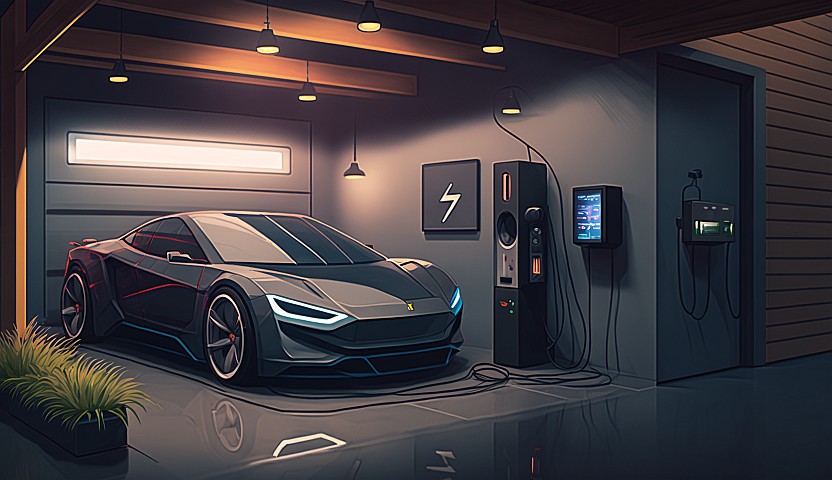Electric vehicles (EVs) have become increasingly popular in recent years as people look for ways to reduce their carbon footprint and save money on gasoline. However, owning an EV comes with some unique challenges, such as the need to charge at home. In this article, we’ll explore the energy consumption and costs associated with using an EV home charger, as well as some money-saving tips to help you keep your energy bills under control.
How To Use This Calculator
Using this energy calculator is a simple and will help you determine the costs of running your appliance. Click on ‘Calculate’ to use the predefined values, or enter your daily usage in hours, appliance watts, and your current energy costs in dollars. The calculator will provide you with the daily, monthly, and yearly results. It’s important to ensure the accuracy of the information entered to get the most accurate results.
Hours Used Per Day
Enter the number of hours you estimate the appliance will be on throughout the day. To use fractions of an hour please use a decimal point in the form.
For example: 1 hour and 30 mintes would be 1.5, and 3 hours and 15 minutes would be 3.25
Power Used in Watts
The calculator already includes a default average wattage. If your appliance uses a different wattage then enter it in the calculator.
Your Energy Rate in kWh
The calculator includes an average energy rate (price in $/kWh) to use for the calculation. This may not be the exact price that you’re currently paying for electricity. If you know your energy rate please enter your price per kilowatt-hour.
Energy Consumption
One of the key factors to consider when using an EV home charger is energy consumption. The amount of energy used will depend on a variety of factors, such as the size of the battery in your EV, the speed at which you want to charge, and the efficiency of your charger. Generally, EV home chargers use around 1600 watts of power.
To put this into perspective, a typical home appliance like a microwave or hair dryer uses around 1000-1500 watts. This means that an EV home charger uses about the same amount of energy as one of these smaller appliances. However, because you’ll likely be using your charger for several hours at a time, the total energy usage can add up quickly.
It’s also worth noting that the energy consumption of your charger will be affected by the voltage and amperage of your electrical circuit, as well as the length and thickness of the charging cable. If you’re unsure about the best way to set up your charging station, consider consulting with an electrician or EV specialist.
Why It’s Important
The energy consumption of your EV home charger is important to consider because it will determine how much you’ll end up paying in electricity bills. With the average cost of electricity in the United States hovering around $0.12 per kilowatt-hour (kWh), even a few hours of charging per day can add up to several dollars in extra energy costs each week.
Cost in Dollars of Energy Usage
To calculate the cost of using your EV home charger, you’ll need to know the wattage of your charger and the cost of electricity in your area. With our default values of 1600 watts and $0.12 per kWh, the formula for calculating the cost of energy usage is:
Cost = (Wattage / 1000) x Cost per kWh x Hours of Use
So, for example, if you charge your EV for 4 hours per day, the daily cost would be:
Cost = (1600 / 1000) x $0.12 x 4 = $0.77
Over the course of a month (assuming 30 days of charging), this would amount to:
Cost = (1600 / 1000) x $0.12 x 4 x 30 = $23.04
And over a year, the total cost would be:
Cost = (1600 / 1000) x $0.12 x 4 x 365 = $280.32
Of course, your actual costs will depend on a variety of factors, such as how often you charge, how much energy your EV uses, and the cost of electricity in your area. To get a better sense of your own energy costs, consider using an online electricity cost calculator or consulting with your utility company.
Money-Saving Tips
Fortunately, there are several ways to reduce your energy costs when using an EV home charger. Here are just a few money-saving tips to consider:
- Charge during off-peak hours: Many utility companies offer lower rates during off-peak hours, which can help you save money on energy costs. Consider charging your EV during the evening or overnight to take advantage of these lower rates.
- Invest in a smart charger: Smart chargers are designed to optimize your charging schedule based on your energy usage patterns, helping you to save money and reduce your environmental impact. Some smart chargers can even be controlled remotely via a smartphone app, making it easy to monitor your energy usage from anywhere.
- Use a timer or schedule: If you’re not ready to invest in a smart charger, consider using a simple timer or scheduling feature to ensure that your charger is only running during the hours you need it. This can help you avoid wasting energy and reduce your overall costs.
- Keep your EV charged: The more frequently you have to charge your EV, the more energy you’ll use. To reduce your energy costs, try to keep your EV charged as much as possible, rather than letting it run down to empty before charging.
By following these tips and taking the time to carefully plan your charging strategy, you can reduce your energy costs and enjoy all the benefits of owning an EV without breaking the bank.
